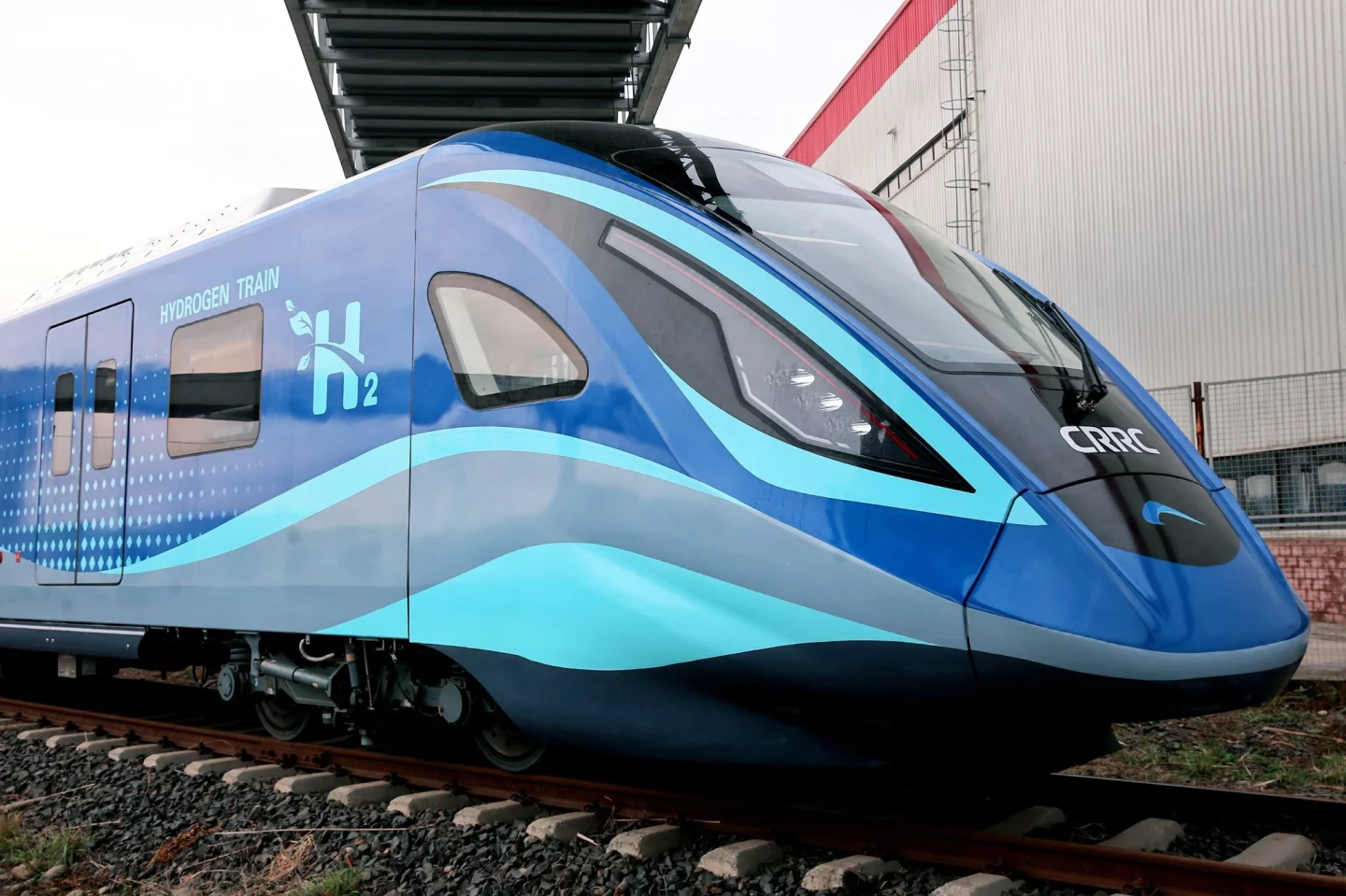The world's largest rail vehicle manufacturer has rolled out a zero-emissions train running on hydrogen fuel cells with a supercapacitor buffer. The four-car train is capable of 100 mph (160 km/h), making it the fastest hydrogen train to date.
Jointly developed by state-owned industrial monolith CRRC and Chengdu Rail Transit, this is China's first hydrogen-powered passenger train, offering a range of 373 miles (600 km), and emitting nothing but water. It's capable of self-driving, with 5G communications, automatic wake-up, start and stop, and return to depot functionality.
Germany is ahead on this kind of thing, with some 14 hydrogen-fueled Alstom trains already in service as of last year. The CRRC machine can beat the German trains for speed by around 20 km/h (12 mph), but the German trains currently offer a much greater range at ~620 miles (1,000 km).
It's interesting to note that while Japan and Korea have been the most vocal countries pushing for green hydrogen as a transport solution, the latest figures show China is taking the lead in actual hydrogen refueling station deployments. There are only a little over 1,000 hydrogen stations in the world, according to Information Trends, and around one-third of them are in China.

That might be a telling move; the country that controls the vast majority of the lithium battery supply chain is also quietly moving the fastest on hydrogen. With a lithium resource squeeze threatening to drive prices through the roof and kneecap the electric revolution right as it's picking up speed, it would seem prudent to push hydrogen alternatives early.
Source: Global Times






